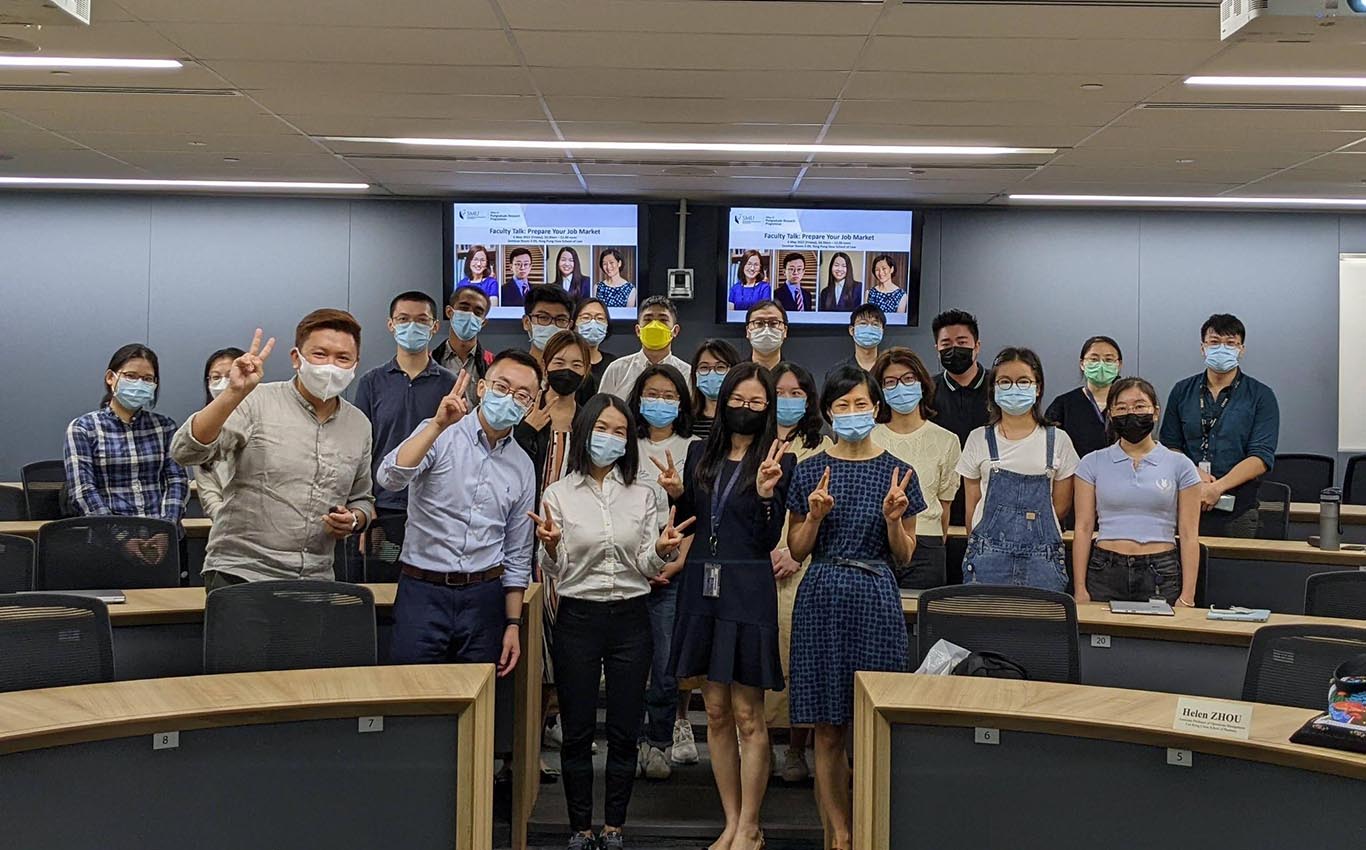
Event Date
The SMU Office of Postgraduate Research Programmes organised its inaugural Faculty Talk around the theme of “Prepare Your Job Market” on 6 May 2022.
A total of 22 participants, including postgraduate research students and staff attended the talk. Three professors, who are at different stages of their academic careers, shared their experiences on job market preparation. Professor WANG Heli, Dean of SMU’s Postgraduate Research Programmes, chaired the session.
Participants gained insights from the esteemed panellists — Assoc Prof Hwajin YANG, Asst Prof Pengkai LIN and Assoc Prof Helen ZHOU.
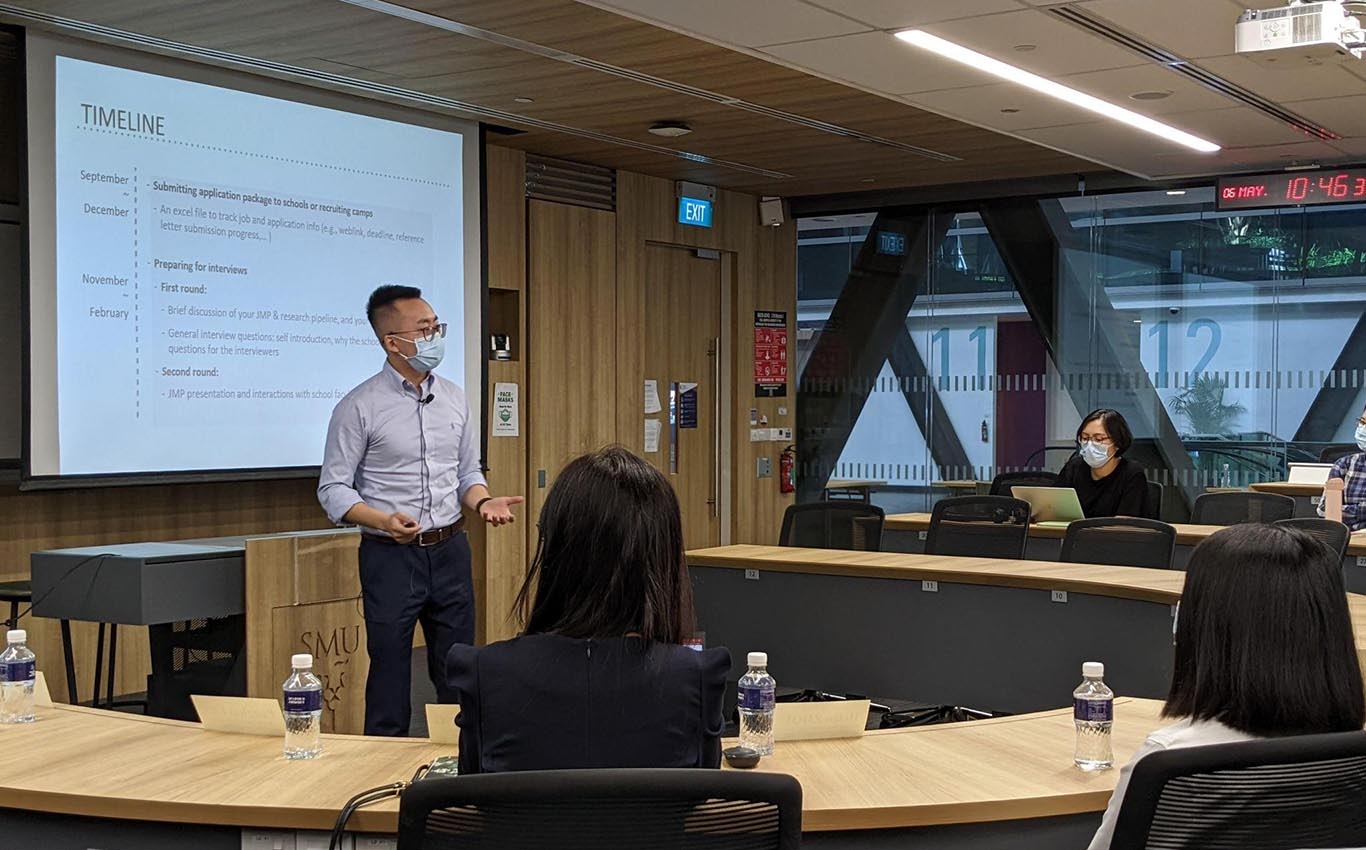
As a new entrant into the field of academia, Assistant Professor LIN provided a comprehensive timeline, and recommended that a PhD candidate should finalise his or her job market paper one year before graduation. He also informed them that they would need to prepare their application packages, and eventually also prepare for their interviews. Additionally, he also provided several useful tips on how candidates can destress, seek support from their social circle and find the right job match.
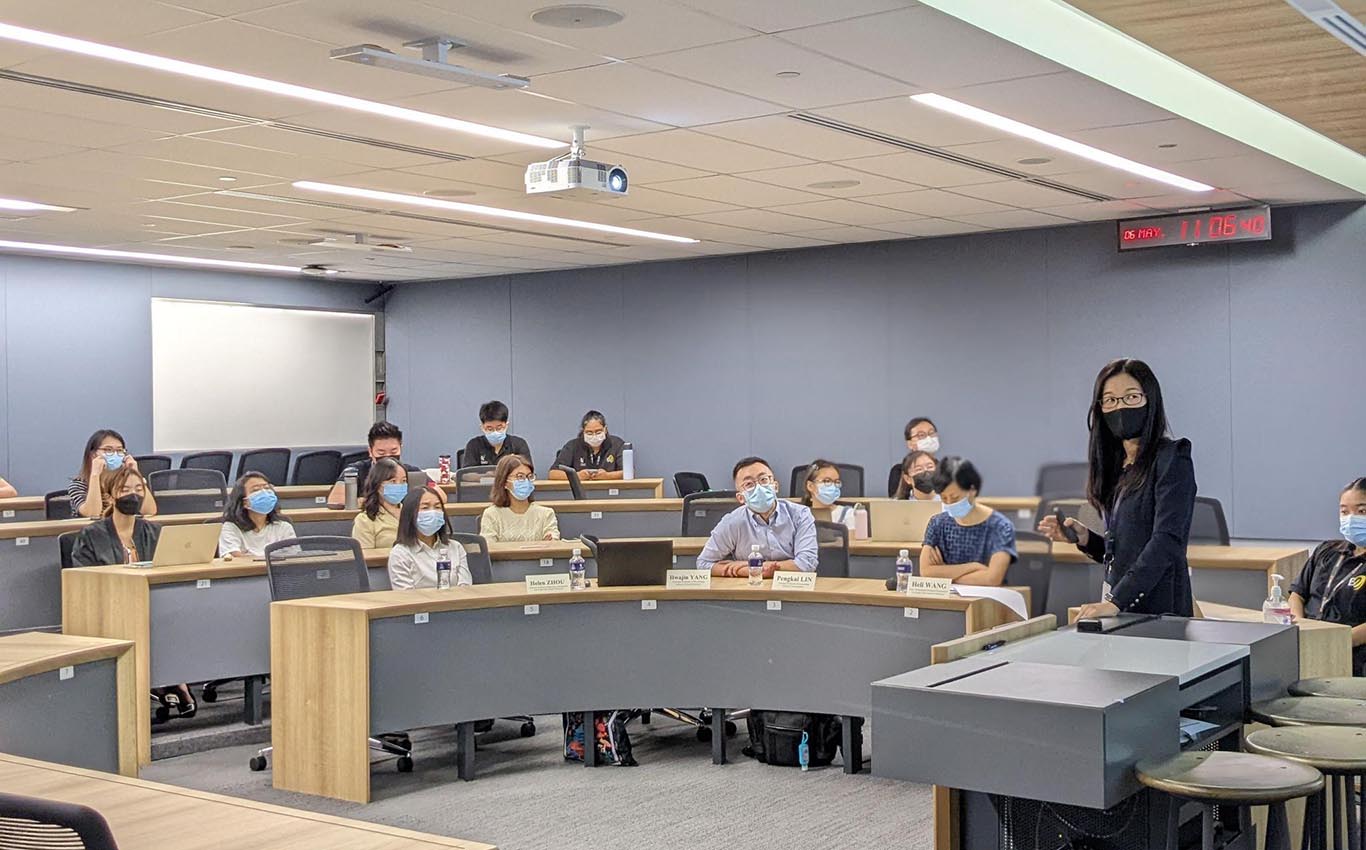
Having been in academia for over a decade, Associate Professor YANG provided a detailed explanation into the world of academia — from sharing about research and teaching, to working through a comprehensive job application process and increasing the chances of securing a successful job placement.
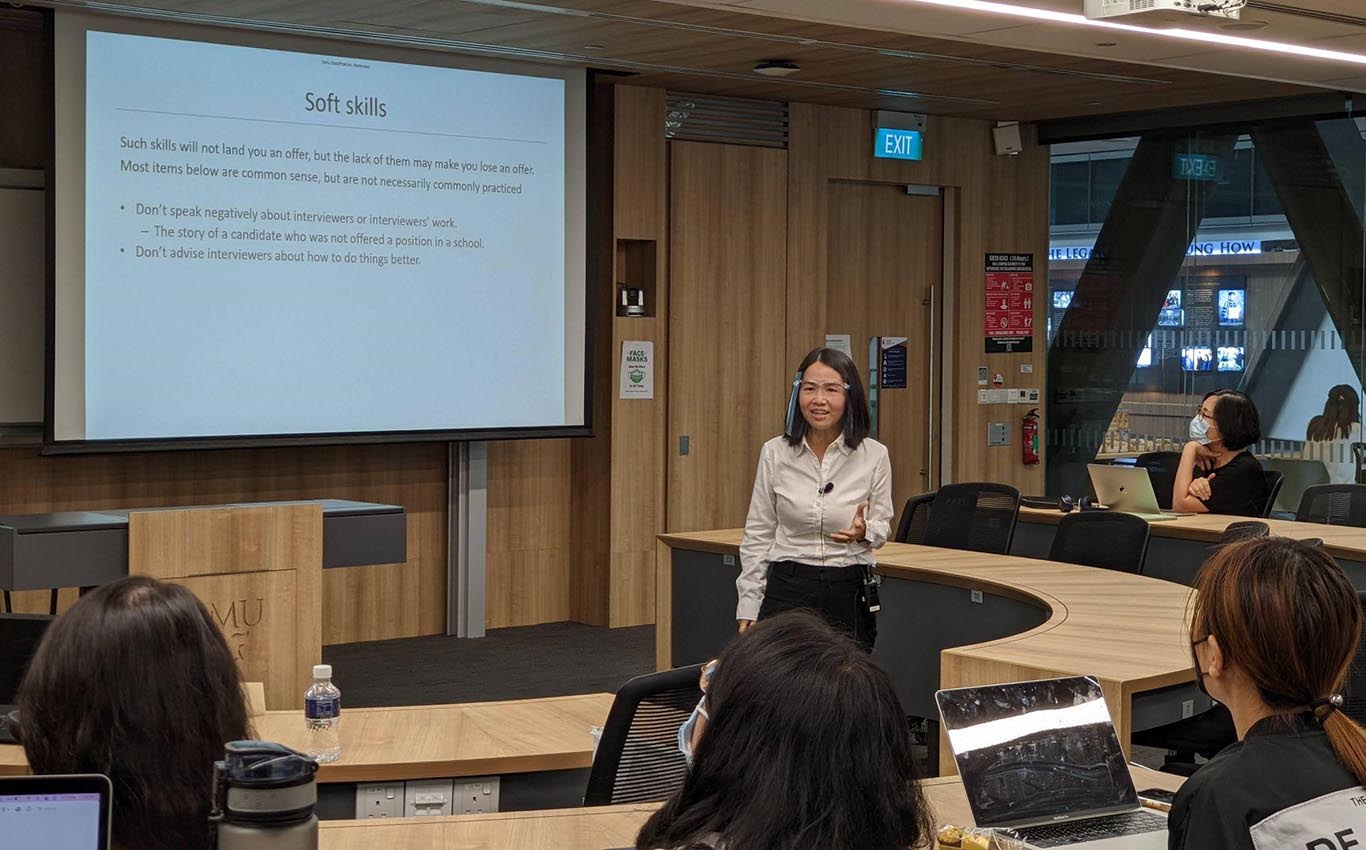
With a similar trajectory as Associate Professor YANG, Associate Professor ZHOU shared many personal experiences and observations. To her, a good job application package includes one's research and teaching of course, but she shared that it would also be good to have soft skills in areas like presentation and writing. She also feels that it is important to show interest in discussing one’s research with the interviewers, in turn showing that one would be a good collaborator in the future.
Discussion with the Students
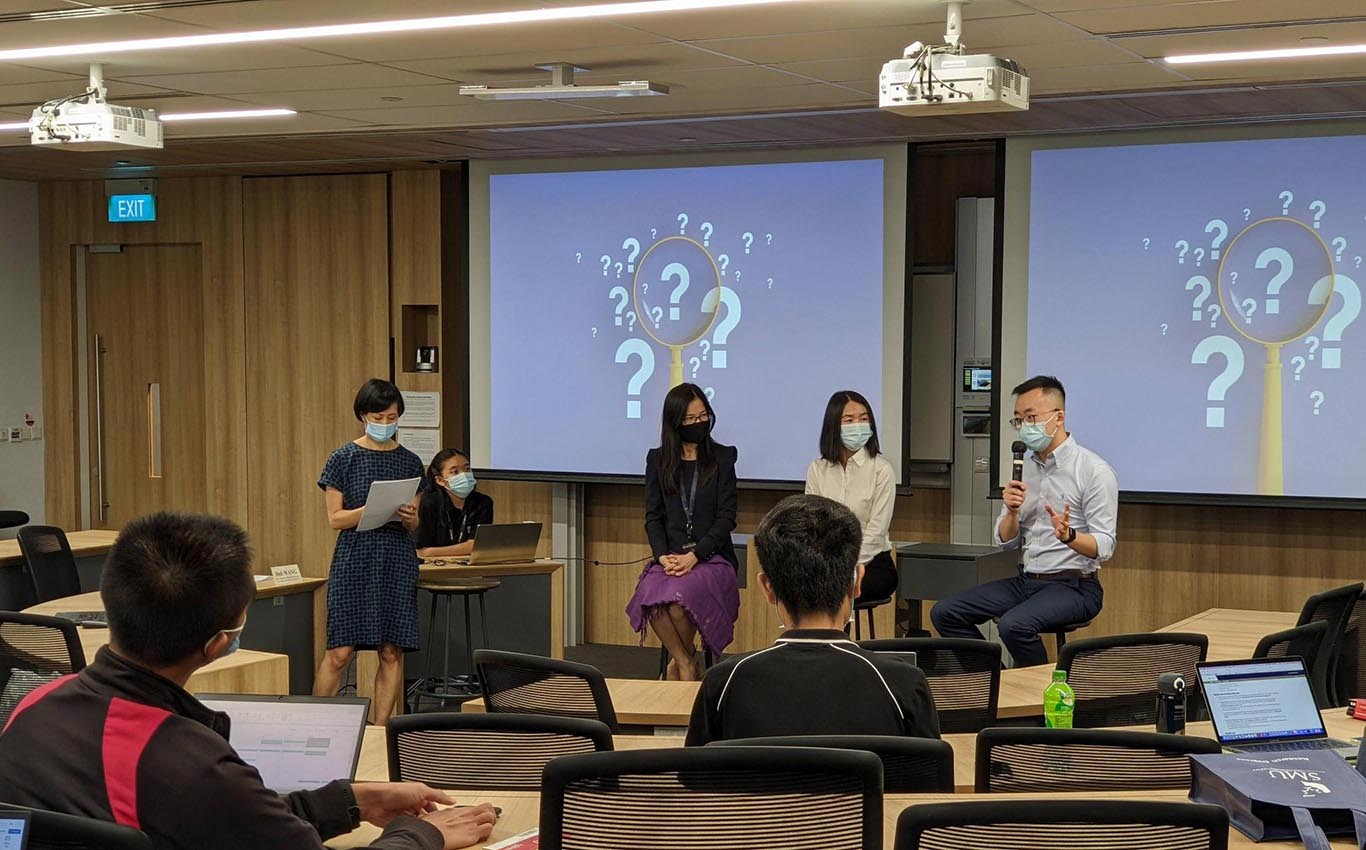
At the robust Question and Answer session, the professors discussed how a PhD student can promote himself or herself and succeed in the job market, even if one does not have any top- tier publications.
It was suggested that one should have an exit strategy, that is, after careful evaluation, one should decide either to discard or keep the paper, rather than spending time revising or fretting over the paper’s prospects. In Associate Professor ZHOU’s field, it will be ideal to have at least one paper in top-tier journals under review. Rather than entering the job market prematurely, it will be good to stay on for one more year to complete one’s post-doctoral studies.
There was an agreement that it is truly challenging to make it into top-tier publications during one’s PhD training since faculty members only develop them after their job commencement or tenure-track positions. Associate Professor YANG suggested trying other strategies to promote one’s research, such as submitting papers to second-tier publications, or plans to expand the research, or work on papers that are in the pipeline, or develop innovative research questions. Furthermore, another important trait to demonstrate is independence as a researcher. Being subsequent authors on multiple papers would also be of great value.
Highlighting one’s research potential, future tenure requirements, passion for research and teaching would be favourable during interviews too, Assistant Professor LIN concluded.
Although, Associate Professor YANG agrees that it would be good strategy for a PhD candidate to have aligned research interests with faculty members at the relevant Schools, one must find a good balance. Candidates must also showcase how their research can relate to relevant faculty members’ work. This allows for common connections and collaborative efforts that can be developed in the future.
